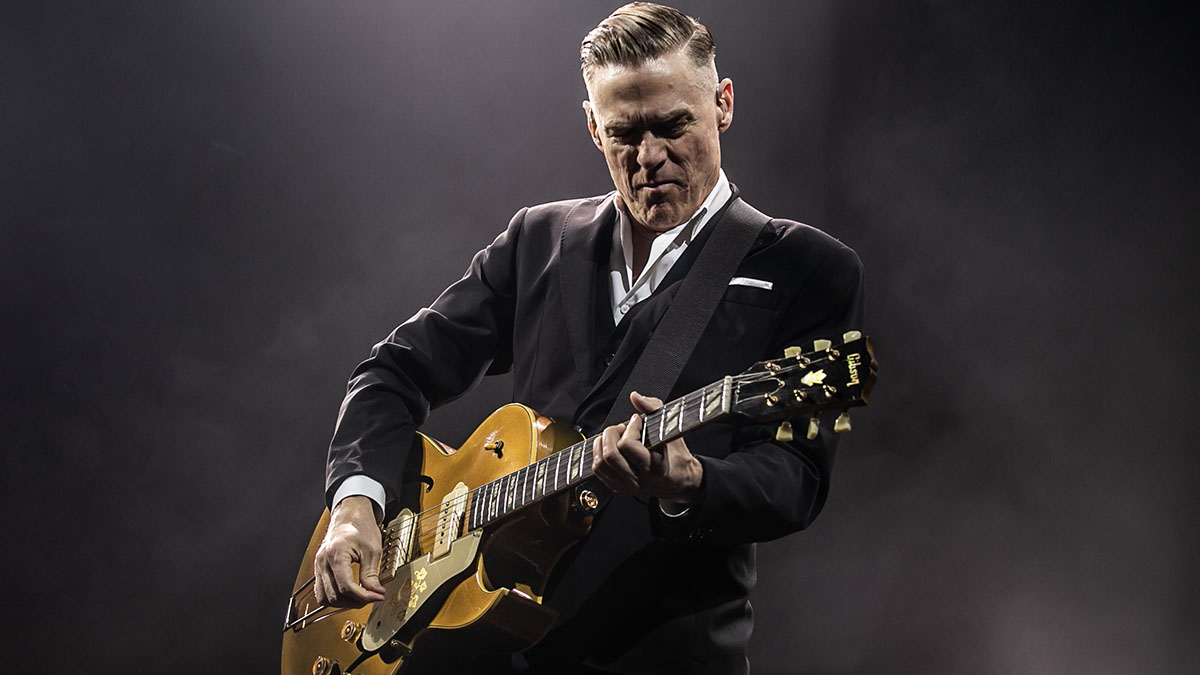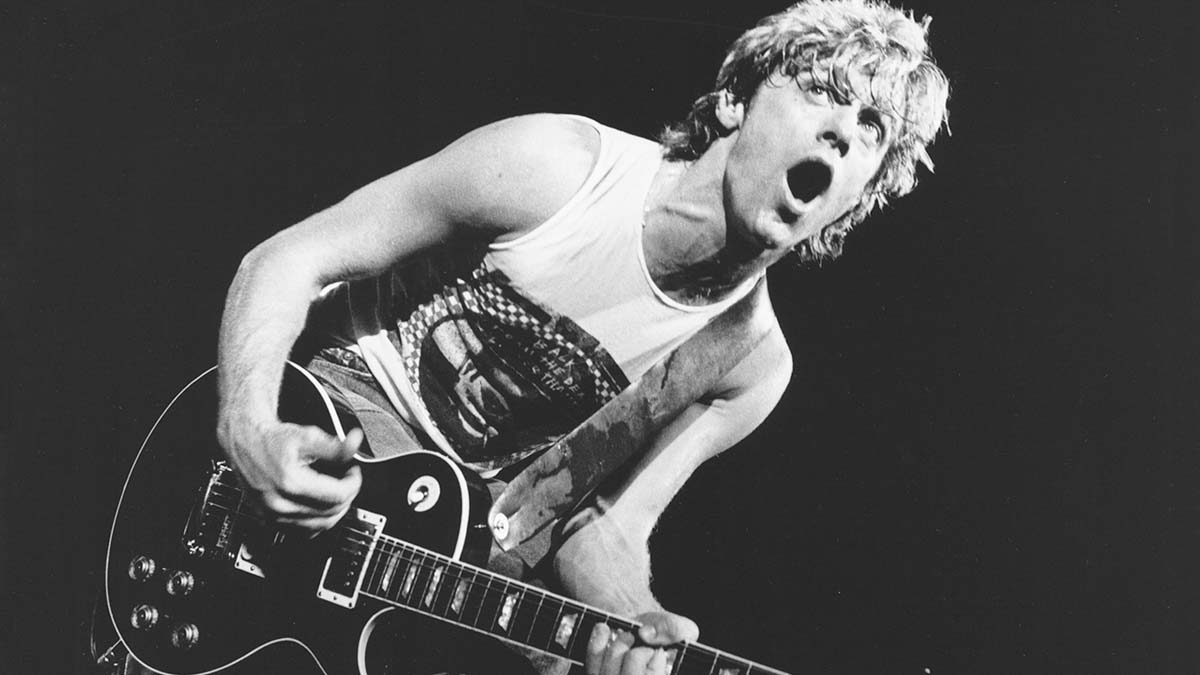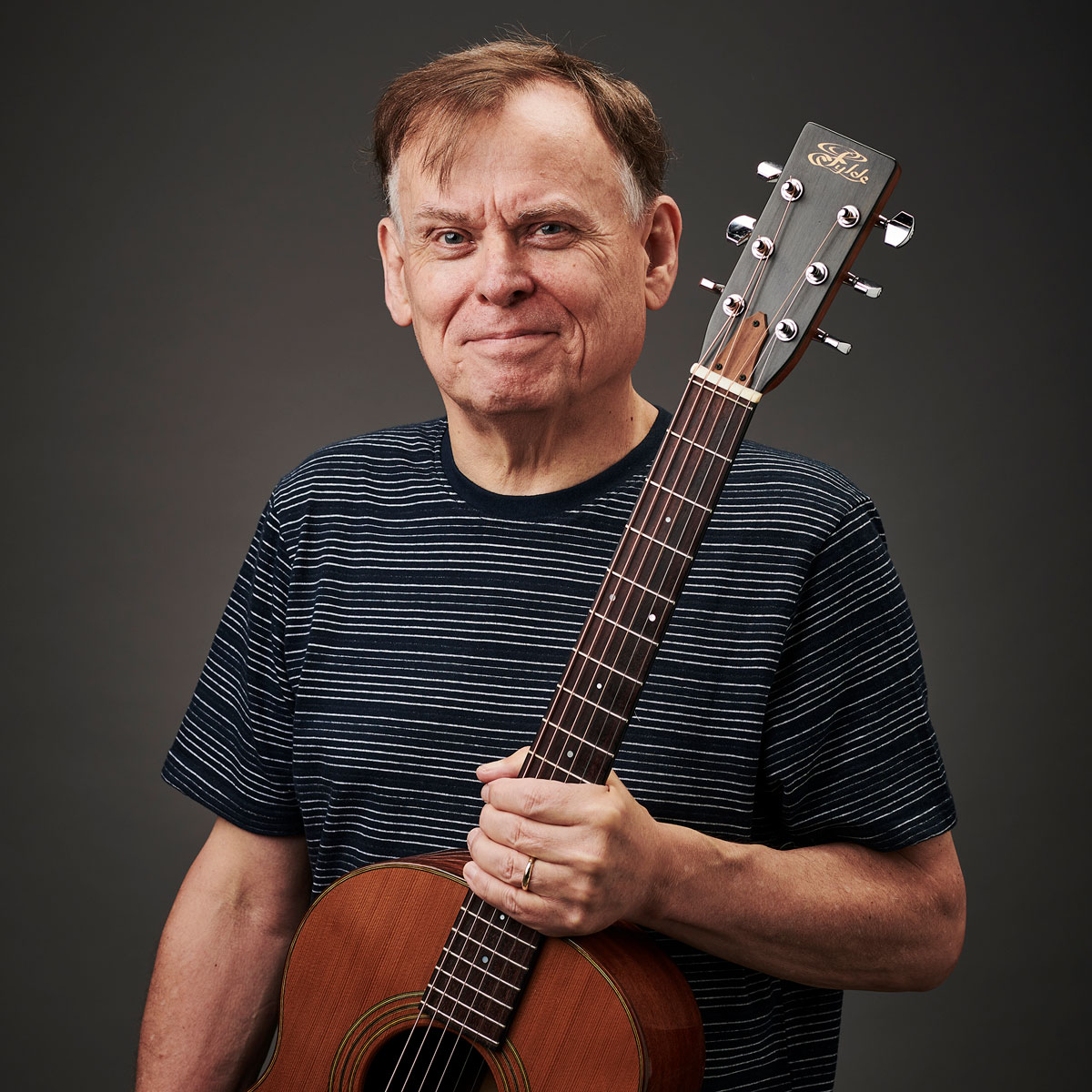Bryan Adams: “My most prized guitar is a D-18 Martin acoustic that once belonged to Johnny Cash”
A rock legend checks in, and one question hangs in the air like a recently twanged E chord. What has made Bryan Adams so joyful that he titled his new album So Happy It Hurts?

Just a few moments into our conversation and the reason for the pure unbridled joy relating to the new record becomes perfectly clear. Having been off the road for the longest time since he turned professional, Bryan Adams’ time in the solitary confinement imposed by the pandemic is drawing to a close and a world tour is in the offing once again.
In fact, it was when an easing of restrictions looked imminent that he immersed himself in songwriting and took to the studio – practically single-handed, as it turns out – to record an album that positively shines with the bright light of optimism. It’s a fun, back-to-basics rock ’n’ roll affair that is bound to set pulses racing in stadiums across the globe when the tour kicks off later this year.
But first things first. We’ve always wondered whether the opening lyrics to the monster hit Summer of ’69 were truly autobiographical… Mr Adams?
You famously sing about buying your first real six-string at a five and dime. Is that true?
“I bought an imitation Les Paul at a five and dime store in Ottawa, Canada in 1971. Before that I had an imitation Strat that I bought in Reading, England in 1970. It felt real at the time to have a Les Paul, even though I’m a massive Ritchie Blackmore fan – still am – I was heavily into Humble Pie’s Rockin’ The Fillmore album at the time, and both Peter Frampton and Steve Marriot were on Les Pauls. It’s rock guitar heaven, that album.”
What age were you when your musical journey first began?
“There was always music in the house when my father was there; he listened to classical and opera all the time. But, for me, it was probably listening to music in my parents’ Chevy Corvair in the early ’60s, but it’s hard to say. I wanted to be a drummer initially, my mates and I were obsessed with Led Zep and, as luck would have it, one of them had a drum kit, which got regular use before and after school.”
Get The Pick Newsletter
All the latest guitar news, interviews, lessons, reviews, deals and more, direct to your inbox!
My parents wouldn’t have a drum kit in the house, and one Christmas my father bought me a flamenco guitar… that’s how I think he imagined directing any potential musical career
What attracted you to the guitar?
“It wasn’t my first choice. My parents wouldn’t have a drum kit in the house, and one Christmas my father bought me a flamenco guitar… that’s how I think he imagined directing any potential musical career.
“Nevertheless, I got into the guitar even though the Spanish guitar is a very hard instrument to play, the fretboard was wide and nylon strings were difficult to master for a nine year old. Interestingly, though, he did take me to see proper flamenco in Seville, Spain when I was about eight or nine.”
What sort of music influenced you to begin with?
“Guitar-based rock. Basically, if your hair was long and the guitars were loud, I was into it. But I also loved raunchy voices: Janis Joplin, The Beatles, Joe Cocker, The Who, Led Zep, Humble Pie… the list is endless.”
Were you in bands at school?
“I left school at age 15 to be in a band. There was nothing in school for me, although I did attend an ‘electronic music’ class before I left. That could have been the best class I’d ever taken in school. It was around the same time that Stevie Wonder’s Songs in the Key of Life [1976] came out and that inspired me to take up singing.
“Walking to school trying to sing and hit those Stevie notes was how I started to feel like I might have a voice. It wasn’t even close, but it did give me the confidence to audition for bands. And every audition I went for as a singer, I got.”
How did you learn to write songs?
“Good question. Like anything, you get better at it the more you do it, but in the beginning I credit having a good co-writer, Jim Vallance, for being my professor. The first day we met, we wrote a song together.
“Prior to meeting Jim, I was 17 and had bought a piano and was teaching myself to play. During that year I drove everyone out of the house with my awful playing. But I found a few chords that sounded good together, like Straight From the Heart, which was written on that piano.”
What was the first step towards turning professional?
“Once I left the bar circuit, I started to get the odd gig here and there thanks to a keyboard player named Robbie King. He hired me to sing backups and that led to getting some studio work and learning to work with groups of singers. Occasionally, I would get a solo studio gig, and that really helped pay the rent.”

What do you consider to be your first real big break in the music business?
“I suppose leaving school was the break, but it was kind of out of necessity. I’d been living with my mother at the time, and she was working two or three jobs trying to pay the rent and basically there wasn’t anything in the fridge, so I had to get out there and start working.”
How did the first album come about?
“That was a collection of the first songs that Vallance and I had written. When I listen to it now, it’s fun but disjointed. We didn’t really have a direction, just some good-sounding songs. It wasn’t until I took the songs on the road that things started to come together and the second album of songs sounded more cohesive. I love my second album, You Want It You Got It – recorded and mixed in two weeks.”
Many songwriters tell us they have an old acoustic hanging around the house that is their ‘old faithful’ for songwriting. Would this be true in your case?
“Not really. I’m okay with whatever I can get my hands on.”
Everything I Do… was a massive hit for you. Do you still enjoy performing it live?
“Very much so, it’s a beautiful song. I look forward to singing all of my songs; it’s exciting to look down at the setlist and see what’s next.”
What has been the most unexpected career highlight for you?
“There are so many, but I have to be honest, paying the rent from doing what I love is my main one. But there are the Wembley Stadium gigs, Madison Square Gardens, singing with Tina [Turner], working with Mutt [Lange], writing with Michael Kamen, getting nominated for Oscars together. It’s been a good run.”
Are you a guitar collector?
“Not really, but I have some nice guitars. My most prized guitar is a D-18 Martin acoustic guitar that once belonged to Johnny Cash.”
You play in big venues all over the world. Do you ever miss the ‘romance’ of playing small clubs and bars?
“I often think about the Bare Bones tour I did [in 2010], which was an acoustic tour with Gary Breit on piano and myself. We played small theatres around the world, it was so much fun. So yes, I’m into the small venues, too.”
The new album was created in lockdown – what were your experiences during this period of being involuntarily grounded?
“The biggest drag was not being able to get my band together, so I ended up playing most of the instruments on the album, including the drums. That was great fun. Keith Scott is, of course, playing many of the guitar solos on the album, but we were working over the internet.”
The songs on the new album are, in the main, very upbeat – did they come easily?
“Thanks, yes, they did. I had a lot of ideas kicking around so I would sit down and make a roadmap for a song on guitar, add some drums and bass and see how it felt in its simplest form. If it made it past that I’d keep working on it.
“I was working with Mutt Lange over the internet on a bunch of songs. I would send him a song idea, he’d send back a structure of a song, and we’d back and forth it until it sounded right. Getting an email from Mutt was always good.”
What gear did you take with you into the studio?
“I bought myself a Ludwig drum kit, something I’d wanted to do since I was a kid. I had my Gibson ES-295, a Vox AC30, two Fender Stratocasters – my trusty Cherry Red 1964 and a Ritchie Blackmore model that Keith [Scott] had given me – a Fender Jazz and a Fender Precision bass, a Custom Shop Gibson Les Paul and a Hammond B3. There are, of course, other instruments like a piano and percussion, too.”
Are you looking forward to getting back out on the road?
“[As the song says…] Getting back on the road – is all I’ve ever known/It was written in the stars – one night stands, guitars and bars/On the road again – since I can’t remember when/It’s back to the music – where I know I can lose it…”
- So Happy It Hurts is out now via BMG.
With over 30 years’ experience writing for guitar magazines, including at one time occupying the role of editor for Guitarist and Guitar Techniques, David is also the best-selling author of a number of guitar books for Sanctuary Publishing, Music Sales, Mel Bay and Hal Leonard. As a player he has performed with blues sax legend Dick Heckstall-Smith, played rock ’n’ roll in Marty Wilde’s band, duetted with Martin Taylor and taken part in charity gigs backing Gary Moore, Bernie Marsden and Robbie McIntosh, among others. An avid composer of acoustic guitar instrumentals, he has released two acclaimed albums, Nocturnal and Arboretum.
“While the odd corner has clearly been cut, these are true Gibsons with all the individuality that this brand exhibits”: Gibson J-45 Special and Hummingbird Special review
“Fender has stripped back the price – but has it gone too far paring back the sounds, too?” Fender Standard Acoustasonic Telecaster review











